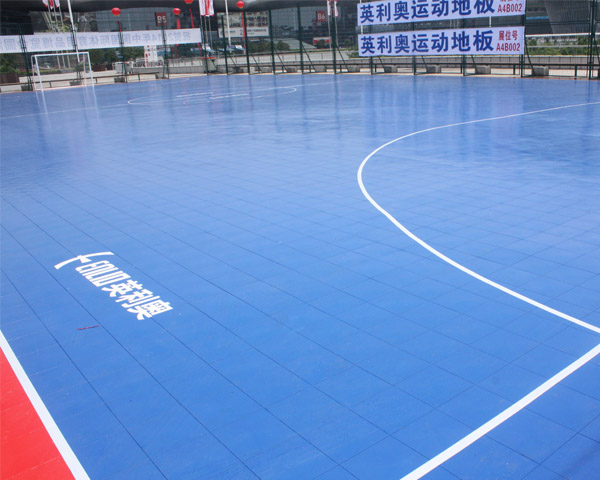نويابىر . 27, 2024 01:07 Back to list
Effective Tile Flooring Options for Commercial Kitchens to Enhance Durability and Cleanliness
The Essential Guide to Commercial Kitchen Tile Flooring
When it comes to designing or renovating a commercial kitchen, the flooring choice is one of the most critical decisions to make. The right flooring can dramatically impact safety, hygiene, maintenance, and overall aesthetics. Among the various options available, tile flooring stands out as a popular choice in many professional kitchens. This article explores the advantages of using tile flooring in commercial kitchens, discusses different types of tiles, and offers maintenance tips to ensure longevity.
Why Choose Tile Flooring for Commercial Kitchens?
1. Durability Commercial kitchens are high-traffic environments where floors endure heavy foot traffic, spills, and potential equipment drop impacts. Tile flooring is known for its exceptional durability, making it a suitable choice for such rigorous conditions. Additionally, ceramic and porcelain tiles can withstand considerable wear and tear without showing signs of damage.
2. Water Resistance Spills are part and parcel of any kitchen operation. Tile flooring, particularly glazed ceramic or porcelain tiles, is highly water-resistant, thereby mitigating the risk of water damage, warping, or mold growth. This characteristic is paramount in maintaining a hygienic environment, as it helps prevent the accumulation of bacteria.
3. Ease of Cleaning Hygiene is a top priority in any commercial kitchen. Tile floors are easy to clean and maintain, allowing for a quick and effective sanitation process. Regular sweeping and mopping are often sufficient to keep tile surfaces free from dirt and contaminants. The grout lines may require periodic scrubbing, but advancements in grout materials mean that there are now effective options that resist staining and promote easier cleaning.
4. Safety Safety is another crucial consideration in commercial kitchens. Many tile options feature slip-resistant surfaces that help provide traction, reducing the likelihood of slips and falls — a common risk in fast-paced culinary environments. With careful selection, chefs and kitchen staff can feel more secure while working.
5. Aesthetic Appeal While functionality is paramount, aesthetics should not be overlooked. Tile flooring comes in a wide variety of styles, colors, and textures, allowing business owners to create a kitchen environment that reflects their brand identity. From classic whites and grays to vibrant colors or patterns, the design possibilities can integrate seamlessly into the overall décor of the establishment.
Types of Tiles for Commercial Kitchens
1. Ceramic Tiles These are one of the most frequently used types in kitchens due to their affordability, resilience, and variety of designs. Ceramic tiles are suitable for areas that do not face heavy equipment movement.
commercial kitchen tile flooring

2. Porcelain Tiles Offering even greater durability than ceramic, porcelain is denser and less porous, making it an excellent choice for commercial kitchens. It can handle heavy loads and is resistant to stains and scratches, which makes it ideal for bustling kitchen environments.
3. Vinyl Composite Tiles (VCT) Though not technically tile in the traditional sense, VCT is a cost-effective flooring option that provides a similar aesthetic to tile and is easy to install. However, it requires regular maintenance and waxing to keep it looking good.
4. Mosaic Tiles These can add a decorative touch to kitchen spaces, particularly in areas where a unique design element is desired, such as backsplashes. While typically used sparingly, they can enhance the visual appeal without sacrificing functionality.
Maintenance Tips for Tile Flooring
- Regular Cleaning Develop a routine cleaning schedule that includes sweeping or vacuuming daily to remove debris and mopping with a pH-neutral cleaner.
- Seal Grout Lines Consider applying a grout sealer to prevent stains and moisture absorption, thereby extending the life of the grout lines.
- Prompt Spill Management Quick cleanup of spills prevents staining and keeps the floor safe.
- Inspect for Damage Regularly check tiles and grout for cracks or damage to address any issues before they worsen.
In conclusion, tile flooring presents numerous benefits for commercial kitchens, including durability, water resistance, ease of cleaning, safety, and aesthetic appeal. By understanding the different types of tiles available and implementing a proper maintenance regimen, business owners can ensure that their kitchen flooring remains a functional, safe, and stylish component of their culinary operations for years to come.
-
Converting Tennis Court to Pickleball Fast & Affordable Solutions for Any Facility
NewsJul.04,2025
-
Professional Tennis Court Lining Services Pickleball Court Marking Experts
NewsJun.24,2025
-
Pickleball Court for Sale - Premium Flooring Solutions for Sports Venues
NewsJun.10,2025
-
Maple Grove Outdoor Pickleball Courts - Premium Conversion & Durable Materials
NewsJun.10,2025
-
Best Pickleball Outdoor Courts Solutions Convert Tennis Courts, Outdoor Covered Courts, Maple Grove Options
NewsJun.10,2025
-
Convert Tennis Court to Pickleball Fast & Affordable
NewsJun.09,2025

